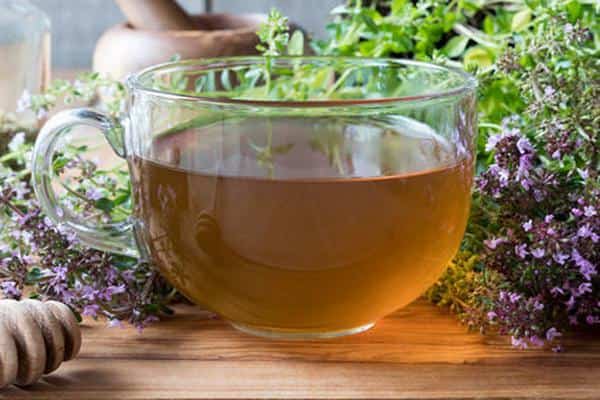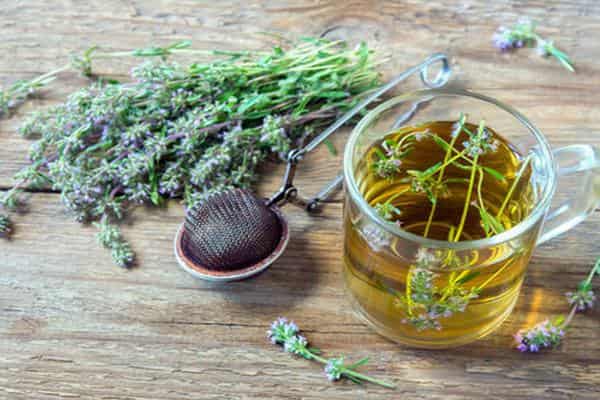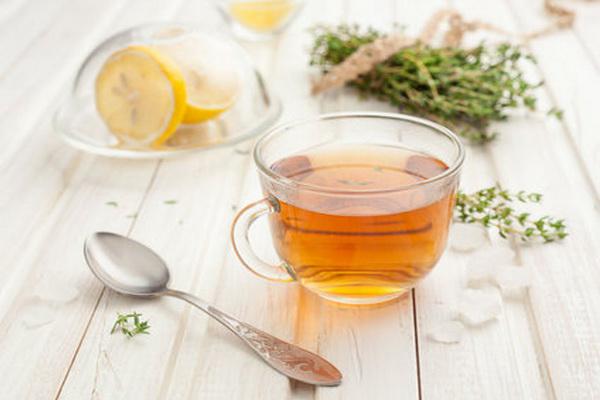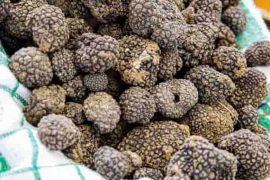Зміст
Thyme is a fragrant plant that has been used for centuries not only in cooking but also in medicinal herbs. It has many health benefits, including the essential oil it contains. Thyme-based tea is a natural remedy for coughs, sore throats and upper respiratory tract infections, as well as for strengthening the immune system. However, these are not the only benefits of infusion. It improves digestion and may relieve symptoms of stomach problems such as gas, nausea and vomiting. Thyme tea also supports liver function and helps regulate blood pressure and blood sugar levels. By consuming it regularly, we can also get rid of chronic fatigue and improve mood. Why else is it worth drinking thyme tea? What will we find in it? What properties does it have?
What is worth knowing about thyme?

Thyme is a plant from the Lime family that comes from the Mediterranean. Nowadays, it is grown in many regions of the world and is widely used in cooking (especially in French) as an aromatic spice. The health benefits of thyme have been known for centuries, making it one of the most popular plants used in herbal medicine. In ancient times, thyme was used as a diuretic and as a treatment for colds.
Properties of thyme tea
Helps with coughs and colds. Thyme contains many antioxidants and antibacterial substances, which is why it is often used to support immunity and treat colds. Its essential oil makes it easier to pass phlegm and has a relaxing effect, so drinking thyme tea can relieve coughs and other symptoms of upper respiratory infections, such as sore throat or hoarseness. It also helps to quickly cope with angina pectoris, laryngitis, bronchitis and influenza.
Soothes ailments of the digestive system.
Thyme tea is worth drinking for digestive problems and indigestion. It stimulates the metabolism and helps relieve the feeling of heaviness after eating too heavy or fatty foods. It also has a diuretic effect, cleanses the body of toxins and removes harmful microorganisms. Recommended for food poisoning, diarrhea, flatulence, nausea and vomiting. In addition, it has anti-inflammatory properties, soothes irritable bowels and prevents fatty liver.
Reduces blood pressure and blood sugar
Drinking thyme tea regularly can help regulate blood pressure and improve the health of veins and arteries. It’s also a good idea to use thyme as a spice instead of salt, especially if you have problems with water retention. The ursolic acid found in this plant also lowers blood sugar levels, so it may reduce the risk of diabetes and insulin resistance.
Improves mood and relieves fatigue
Thyme contains carvacrol, a substance with relaxing, soothing and muscle-relaxing properties. The infusion of this plant also stimulates brain activity and strengthens mental capacity, so that it can improve well-being and reduce the signs of chronic fatigue. Thyme provides energy and relieves stress, anxiety and irritability. It is also worth taking it before your period to help reduce the symptoms of premenstrual syndrome.
Disinfectant:
Thymol, found in thyme, has strong antiseptic and antifungal properties, making it ideal for oral disinfection. You can gargle it with thyme infusion, which will not only remove bad breath, but also reduce inflammation and soothe sores and other ulcers. It will also strengthen your teeth and gums and help fight tooth decay. Thyme infusion can also be used to disinfect wounds, skin cuts, and eye infections.
Application and contraindications

Thyme tea is very easy to make. Simply pour a tablespoon of thyme herb over a glass of boiling water and strain when it cools. If we want to use it to treat coughs and colds, add a spoonful of honey and juice squeezed from half a lemon. Such an infusion will have an enhanced anti-cough effect.
It is worth knowing that excessive consumption of thyme tea can be harmful when the thymol it contains becomes very toxic. Therefore, drink no more than one glass of infusion per day. Thyme infusions should be avoided by pregnant women, people with stomach ulcers, and those who are chronically ill and taking medications. Thyme can interact with them and interfere with their work.








